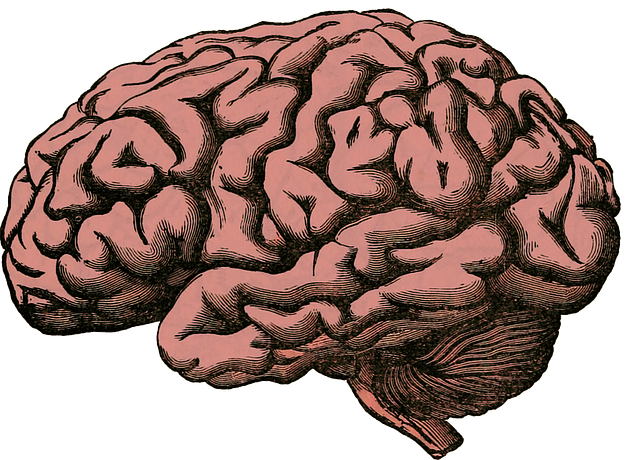In today's diverse society, cultural competency in healthcare is vital for delivering quality care, especially at urban centers like Denver Divorce Therapy. It involves recognizing and respecting varied beliefs, values, and behaviors, leading to personalized support tailored to patients' unique cultural backgrounds. This enhances crisis intervention guidance and improves patient satisfaction, particularly for marginalized communities. In Denver, a diverse city, therapists must navigate racial, ethnic, religious, and gender identity issues when offering services like divorce therapy. Effective training includes Mind Over Matter Principles and Compassion Cultivation Practices, fostering inclusive environments and improving patient outcomes. Success is measured through post-training evaluations, real-world application analysis, and long-term tracking of patient satisfaction and staff burnout rates.
In today’s diverse society, cultural competency is essential in healthcare. This article explores the need for and impact of training programs focused on improving patient care through culturally sensitive practices, particularly in the context of Denver divorce therapy. We define cultural competence, identify challenges faced by therapists in Denver, and provide strategies for effective training implementation. Additionally, we discuss measuring success through outcome evaluation, ensuring continuous improvement in healthcare delivery.
- Understanding Cultural Competency in Healthcare: Denving the Need
- Defining Cultural Competence and Its Impact on Patient Care
- Identifying Challenges in Providing Culturally Sensitive Therapy in Denver
- Strategies for Implementing Effective Training Programs
- Measuring Success: Evaluating the Outcomes of Cultural Competency Training
Understanding Cultural Competency in Healthcare: Denving the Need

In today’s diverse society, cultural competency within healthcare is no longer an option but a necessity. Understanding and appreciating cultural differences can significantly enhance patient outcomes and create more inclusive, supportive environments, especially in urban centers like Denver Divorce Therapy, where individuals from various ethnic backgrounds seek help. Cultural competency goes beyond basic awareness; it involves recognizing and respecting different beliefs, values, and behaviors to deliver personalized care that addresses unique needs.
The need for cultural competency training is driven by the increasing complexity of healthcare issues and the rise in multicultural populations. For instance, a patient’s cultural background might influence their perception of health, disease, and healing, requiring tailored coping skills development and mental wellness support. Moreover, effective crisis intervention guidance demands an understanding of cultural norms to ensure sensitive and effective communication during stressful situations.
Defining Cultural Competence and Its Impact on Patient Care

Cultural competence is a crucial aspect of healthcare delivery, ensuring that providers can effectively interact and care for patients from diverse backgrounds. It involves understanding and appreciating cultural differences in beliefs, values, behaviors, and communication styles, which significantly impact patient experiences and outcomes. In the dynamic landscape of healthcare, where Denver Divorce Therapy and other specialized services are increasingly in demand, culturally competent caregivers play a vital role in fostering trust and ensuring optimal patient care.
By embracing cultural competence, healthcare providers can enhance their ability to offer personalized treatment plans, respect patients’ autonomy, and navigate sensitive topics like mood management, trauma support services, or burnout prevention strategies more effectively. This approach not only improves patient satisfaction but also leads to better health outcomes, as it addresses the unique needs of each individual within their cultural context. Such sensitivity can be a game-changer, especially for marginalized communities seeking specialized care, such as those in need of Denver Divorce Therapy services.
Identifying Challenges in Providing Culturally Sensitive Therapy in Denver

Providing culturally sensitive therapy in Denver presents unique challenges due to the city’s diverse population. With a growing mix of ethnic and cultural backgrounds, therapists must be adept at navigating intricate issues related to race, ethnicity, religion, and gender identity. Denver’s vibrant community includes various indigenous tribes, Latinx populations, and refugees from around the world, each bringing their own set of experiences, beliefs, and communication styles.
For instance, a therapist in Denver offering divorce therapy might encounter clients from diverse cultural backgrounds grappling with marital issues. Effective conflict resolution techniques become essential when dealing with these varied perspectives. Mental wellness journaling exercise guidance can be tailored to accommodate different cultural practices and beliefs. Moreover, risk management planning for mental health professionals is crucial to address potential cultural missteps that could negatively impact patient care and outcomes in this diverse urban setting.
Strategies for Implementing Effective Training Programs

Implementing effective cultural competency training requires a strategic approach tailored to the unique needs of healthcare providers and their patient populations. One key strategy involves integrating Mind Over Matter Principles into the curriculum, focusing on mental health awareness and resilience-building techniques that can improve cultural sensitivity. By fostering self-awareness among providers, these principles empower them to create more inclusive environments for diverse patients, addressing barriers to care.
Additionally, incorporating Compassion Cultivation Practices has proven beneficial. Training sessions can include mindfulness exercises and role-playing scenarios designed to enhance empathic understanding and patient-centered communication. Encouraging self-care practices among healthcare workers is also vital; when providers prioritize their well-being, they are better equipped to offer compassionate care, especially in challenging situations that may arise during Denver Divorce Therapy sessions or interactions with diverse communities.
Measuring Success: Evaluating the Outcomes of Cultural Competency Training

Measuring the success of healthcare provider cultural competency training is a multifaceted process. It involves assessing not only the knowledge and attitudes gained by participants but also the impact on patient outcomes and practitioner well-being. One effective method is through post-training evaluations, where providers reflect on their learning experiences and share practical applications in real-world scenarios. These assessments can uncover valuable insights into the training’s effectiveness, helping to identify areas for improvement.
Moreover, tracking long-term changes in healthcare delivery, patient satisfaction rates, and depression or burnout prevention initiatives among staff can provide a comprehensive view of the training’s success. For instance, Denver Divorce Therapy has implemented cultural competency programs that have led to improved communication between diverse patients and therapists, resulting in better outcomes for individuals dealing with mental health issues. Such evaluations ensure that healthcare provider cultural competency training remains relevant and impactful, fostering inclusive practices within medical settings.
Cultural competency training is a vital step towards enhancing patient care, especially in diverse cities like Denver. By addressing the challenges faced by healthcare providers in delivering culturally sensitive therapy, these programs can significantly improve outcomes for patients from various backgrounds, including those seeking Denver divorce therapy. Implementing effective training strategies and measuring success through outcome evaluation ensures that healthcare professionals are equipped to navigate complex cultural scenarios, ultimately fostering better patient relationships and more positive therapeutic experiences.














